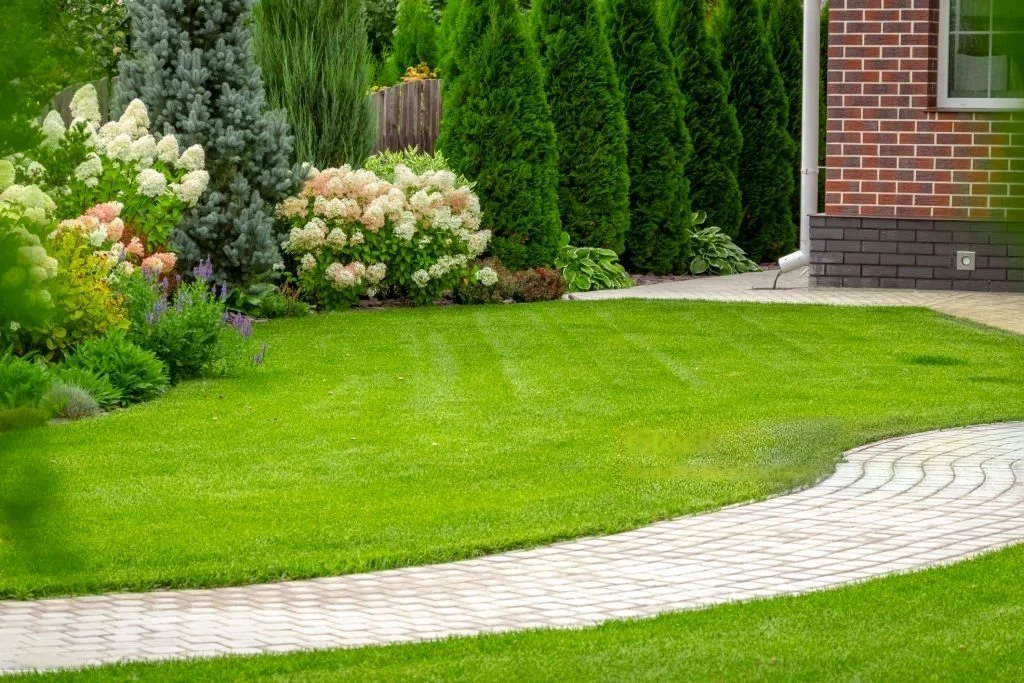
Plant Health Care
What is Plant Health Care?
Just like us, shrubs, trees, perennials, and all plants need routine care. Plant Health Care, often referred to as PHC, is the process of treating plants with specific products to prevent disease, add vital nutrients, fertilize, and deter insects along with fungus from infecting your plant(s). With continual care, plants are more likely to thrive by being able to better resist pests and unpredictable environmental stressors.
Protective and preventive treatments to plant is a more cost effective approach compared to replacing plants if they die. Assure that your investment into your landscaping is protected through the application of fertilizers, fungicides, pesticides, horticultural oils, etc.
Our Treatment Program
-
This early Spring visit includes a property evaluation and application of horticultural oils to control and protect against overwintered insects and egg masses such as scale and mites.
-
This visit includes a property evaluation and fertilization treatment that stimulates growth in trees and shrubs by providing the proper balance of nutrients for sustained health and proper growth.
-
This visit includes a property evaluation and treatment to control and protect against early hatching leaf chewing insects such as birch leaf miner, tent caterpillars, and spider mites.
-
This visit includes a full property evaluation and treatment to control insects including adelgids, beetles, mites, webworms, and scales in the crawling stages.
-
This visit includes a property evaluation and application to control and protect against late season, persistent, multi-generational insects such as mites, scale, lace bugs, and fall webworm.
-
This visit includes a property evaluation and fertilization treatment that provides essential micro and macro nutrients to enhance spring bloom and improve vigor to help withstand winter stresses.
-
This visit includes a property evaluation and application of horticultural oil to control and protect against insects that remain active in the colder months.
-
This visit includes a property evaluation and application of waxy protective coating applied to the tops and underside of broadleaf evergreens to prevent water loss or injury during the winter months.
Common PHC Questions:
How Often Do You Treat Plants?
Beginning in March-April and ending in November-December , you can anticipate up to approx. 8 total visits to treat your plants depending on temperatures and weather. Routine care is essential to catching problems before they arise.
What Are The Benefits Of A PHC Program?
Ignoring your plants health can be a costly mistake. The benefits of a Plant Health Care program for your landscape is the following:
Protective your investment and plants from having to get replaced if they die. This can be a more costly reality than having a PHC program for your landscape in the first place.
Saving time and aggravation with having to replace dying or dead plants is a common reality. With the busy lives that we all live, caring for a declining plant is not the best use of time. Getting worry free care with a professional PHC program will allow you to focus on the more important things life has to offer!
Who doesn’t want to have the best looking landscape in the neighborhood? Letting your plants thrive and looks it best is something that a PHC program can provide. Assisting in providing nutrients, fighting disease and pests, as well as having a routine professional inspection of your plants health are all added benefits of routine care.
Have peace of mind knowing that your plants are being cared for. By ditching the worries that may arise in maintaining your landscape, you’ll be above to enjoy it to its fullest!
What Pests & Diseases Are Treated?
Pests and diseases in your landscape can provide major problems. Listed below are a few of the most common that we see and treat for:
Spider Mites
Most common pest in landscapes, very small, and in the same family as spiders and ticks
Aphids
Small insect that sucks fluids from plant stems and leaves
Wood Boring Insects
Most destructive insect to your landscape that tunnel under the bark
Lace Worms
Suck the sap from plants from the underside of leaves
Bag Worms
Common pest for evergreen plants that eat foliage and buds
Leaf Miners
Eat leaf tissue as a larval stage that then turn into Moths or Flies
Leaf Rot
A fungal or bacterial infection that is caused by high humidity and lack of airflow
Rust
A fungal parasite that hosts off of plants feeding from plant tissue
Needle Cast
A fungal disease on Spruce trees that causes needles to turn brown and fall off



